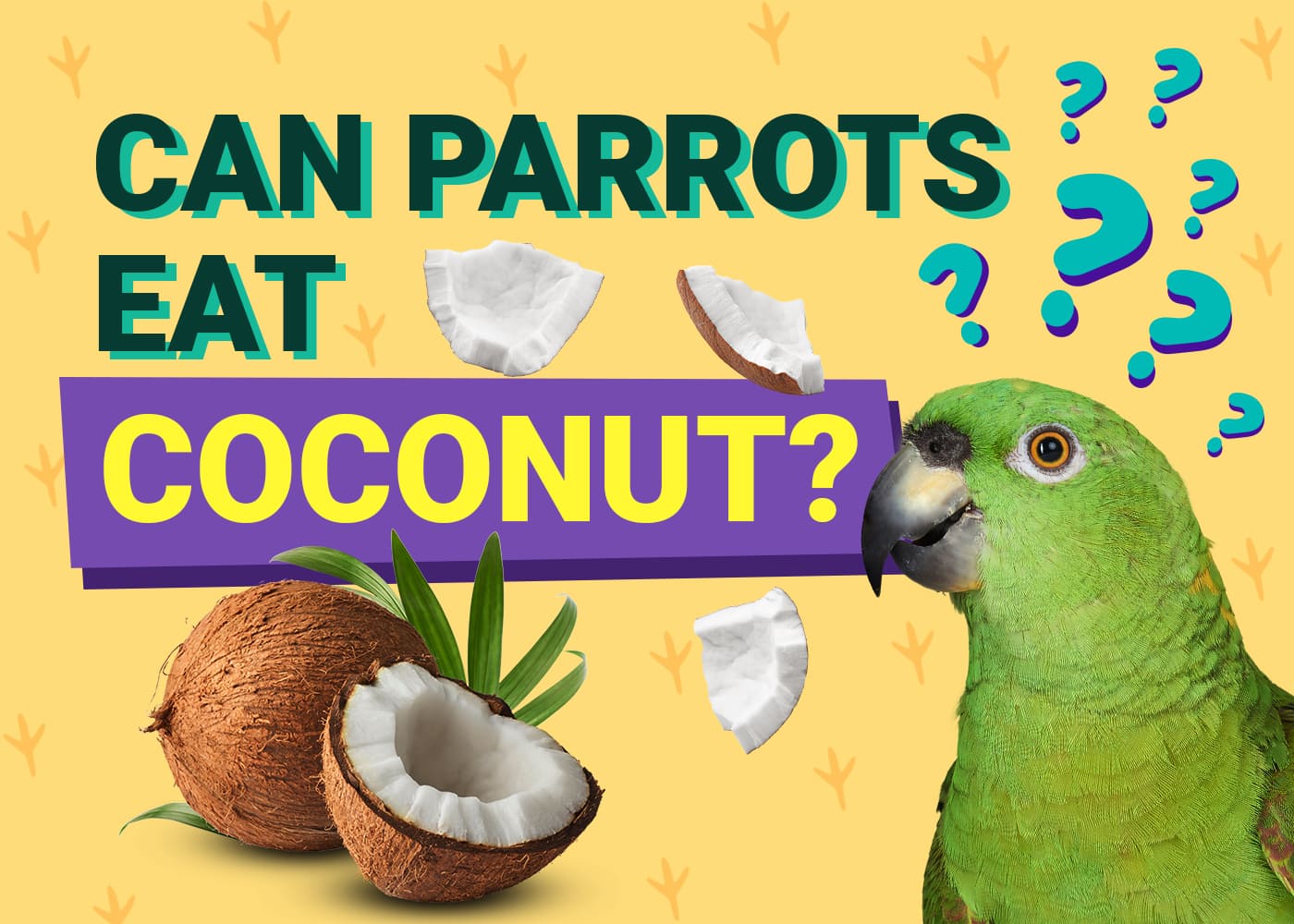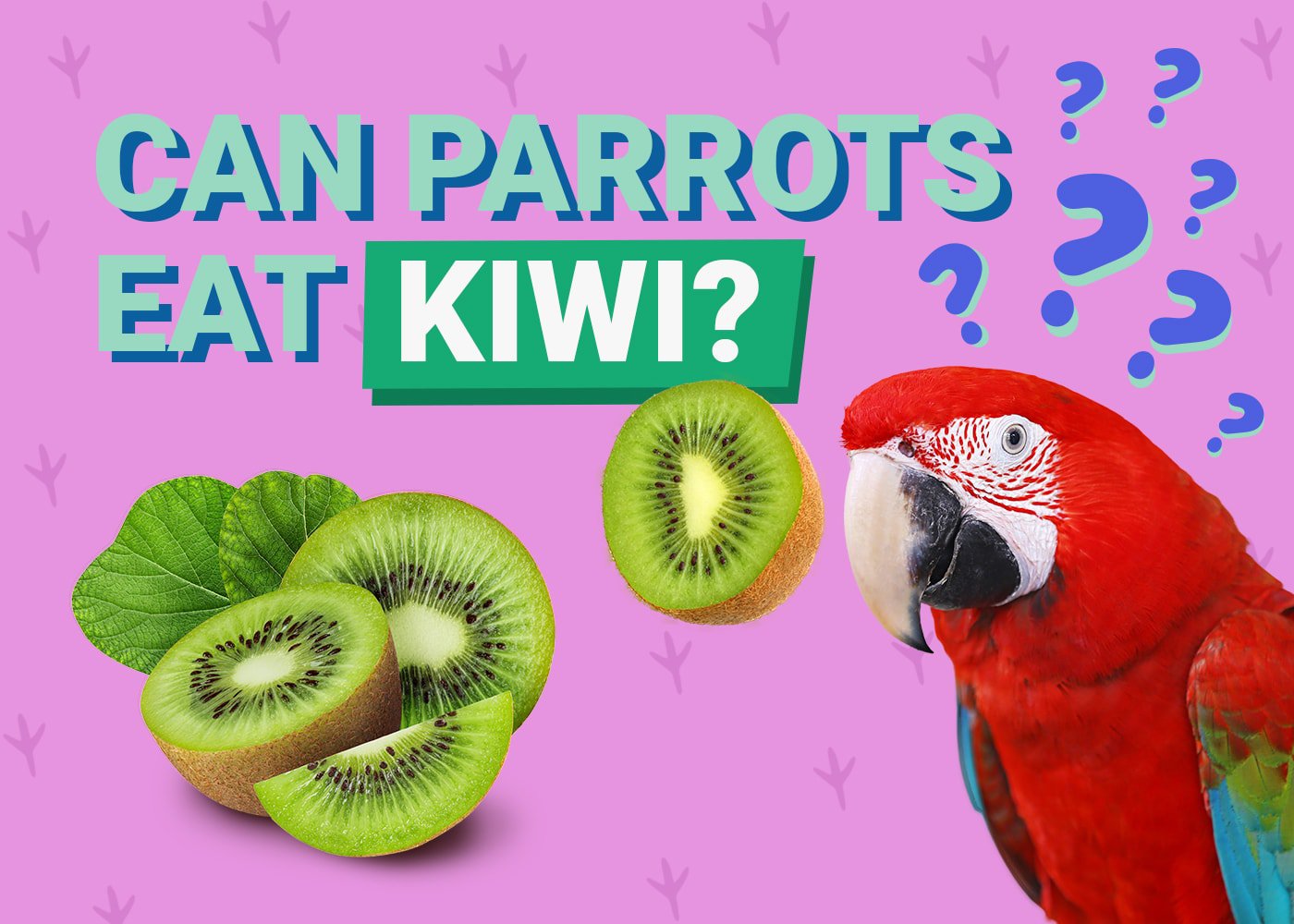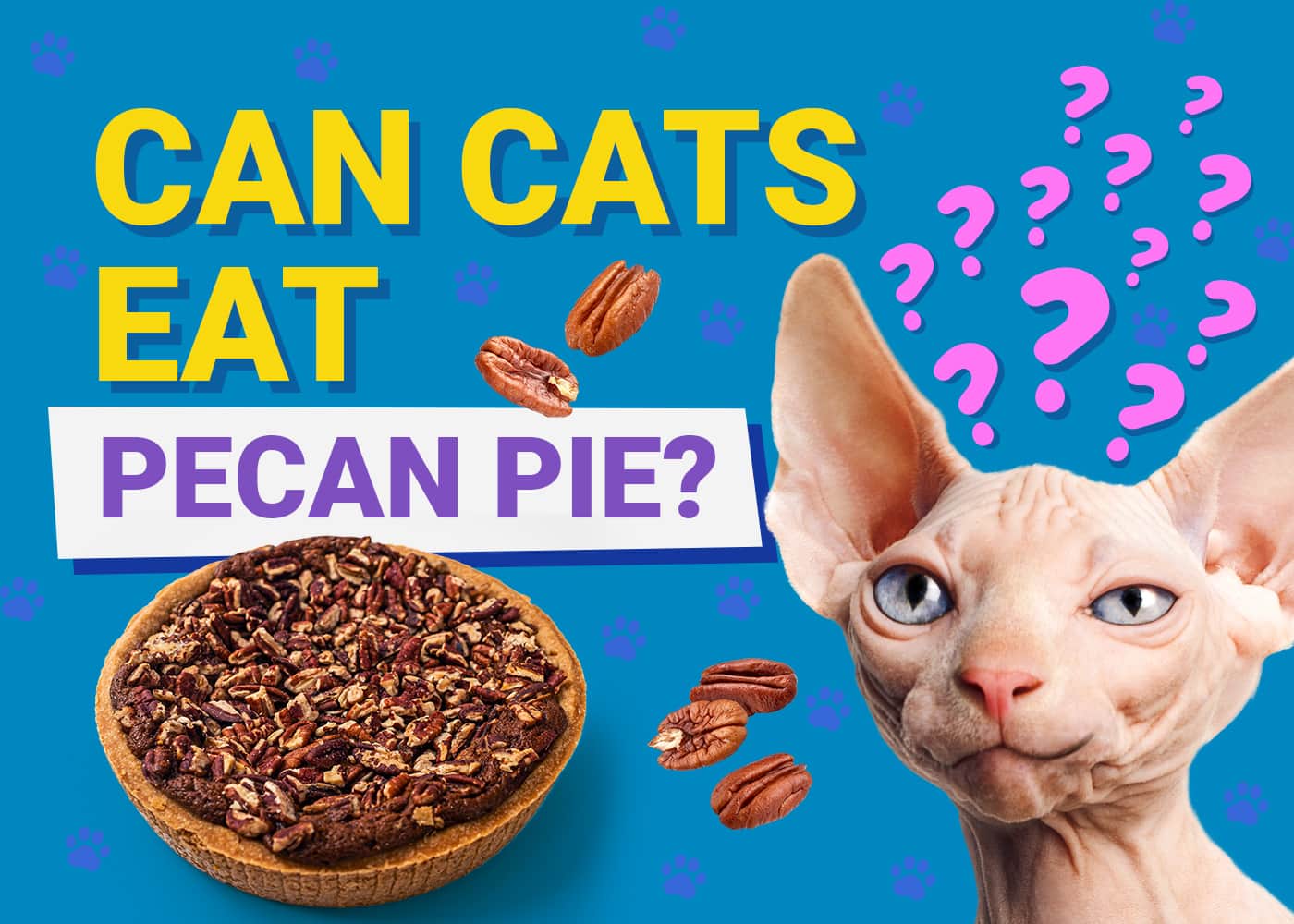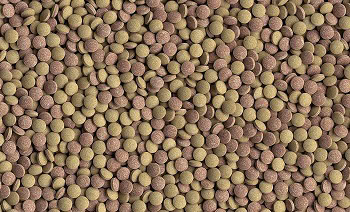VET APPROVED

The information is current and up-to-date in accordance with the latest veterinarian research.
Learn more »Click to Skip Ahead
Parrots are popular pets, and are widely thought to be the most common non-mammal pet on a global scale. Interestingly, parrots aren’t considered domesticated. As such, many owners inaccurately tend to believe that as pets, they should be fed a diet which encompasses what they eat naturally.
Nearly all parrot species kept as pets are considered more or less vegetarian. So, can parrots eat coconut? Though not toxic, coconut is not recommended for pet parrots due to its extremely high fat content.
Read on to learn more about your parrot’s diet as a pet, and why you shouldn’t offer coconut to your pet parrot.

A Pet Parrot’s Diet
The nutrition guidelines for pet parrots have drastically changed over the last few decades. This is due to the fact that more research and observations have been conducted on parrots, which has, in turn, has helped us better understand their nutritional needs.
At one point, it was believed that all pet parrots should be fed the same food items, with variations only in place for their size. However, parrots have different nutritional styles in their natural habitats.
- Granivores – these parrots are primarily seed eaters. Examples include budgies and cockatiels.
- Frugivores – these parrots are primarily fruit eaters. Examples include macaws and almost all South American parrot species.
- Nectarivores – these parrots are primarily nectar feeders, such as the rainbow lorikeet.
Do keep in mind that these distinctions aren’t black and white; many granivores readily eat fruit and likewise, many frugivores also forage on seeds from time to time. Nonetheless, these categories allow for a rough idea of what parrots would eat in the wild.
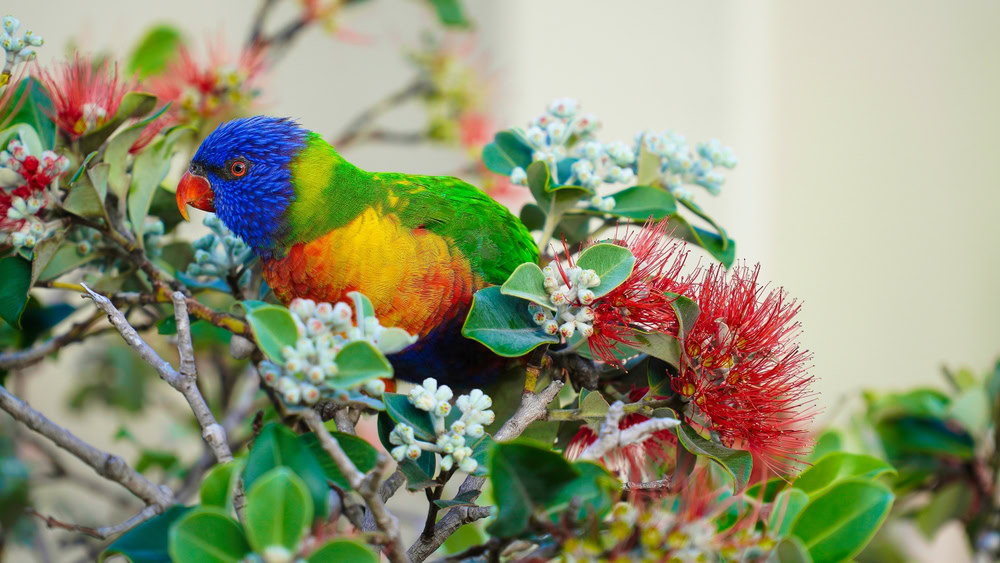
Should My Parrot Eat What They Would in the Wild?
You might think that feeding your parrot a diet that approximates their needs in the wild is the way to go when they’re kept as pets. Unfortunately, this is not true. The high-energy diets of wild parrots are justified due to the unique ecological roles they play in their ecosystems and because of the high levels of exercise they receive on a daily basis as they fly around in search of these foods.
Pet parrots almost never get the level of exercise a wild parrot would, and even if they’re allowed free flight exercises, they’re often so bonded and content with our presence that they spend their time cozying up to us. In addition, as they don’t have to find their food, they’re usually spending their free time playing with toys, solving puzzles, singing, bathing, and screaming to get our attention. As a result of a very different lifestyle, their nutritional needs are also quite different.
The generally accepted nutritional profile of a pet parrot which is agreed upon by avian veterinarians is as follows:
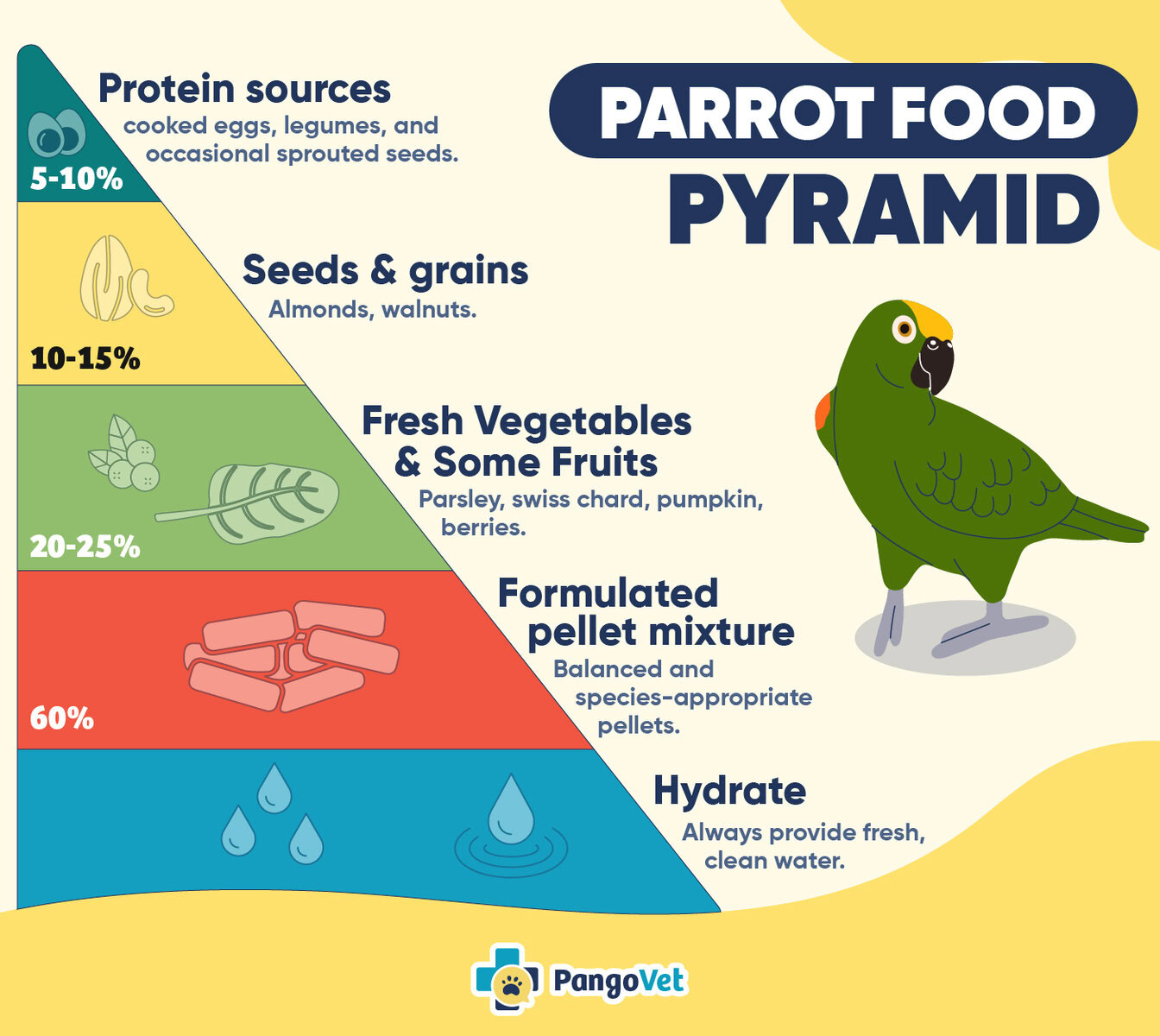
Keep in mind that the guidelines above are a generic guide. Depending on your parrot’s species, age, reproductive status, health status, and even your geographical location, your pet’s needs may definitely be somewhat different in comparison to these guidelines. It is therefore best (and highly recommended) to discuss your pet’s needs with your avian veterinarian.

Does Coconut Benefit a Parrot’s Diet?
Though most parrots may readily accept coconut, it doesn’t necessarily mean coconut is good for them. Parrots often form very strong emotional bonds with their caretakers. If they see you eating something, they may want in on it too. This includes food items that aren’t good for them.
Coconut is extremely high in fats, and is almost entirely made of saturated fats (also known as the “bad” fat). This makes it considerably unhealthy for pet parrots, and even humans. Though pet parrots would definitely benefit from the inclusion of some fat in their diet, they’re better off getting these through sources such as nuts. This is because nuts would also offer your parrot protein.
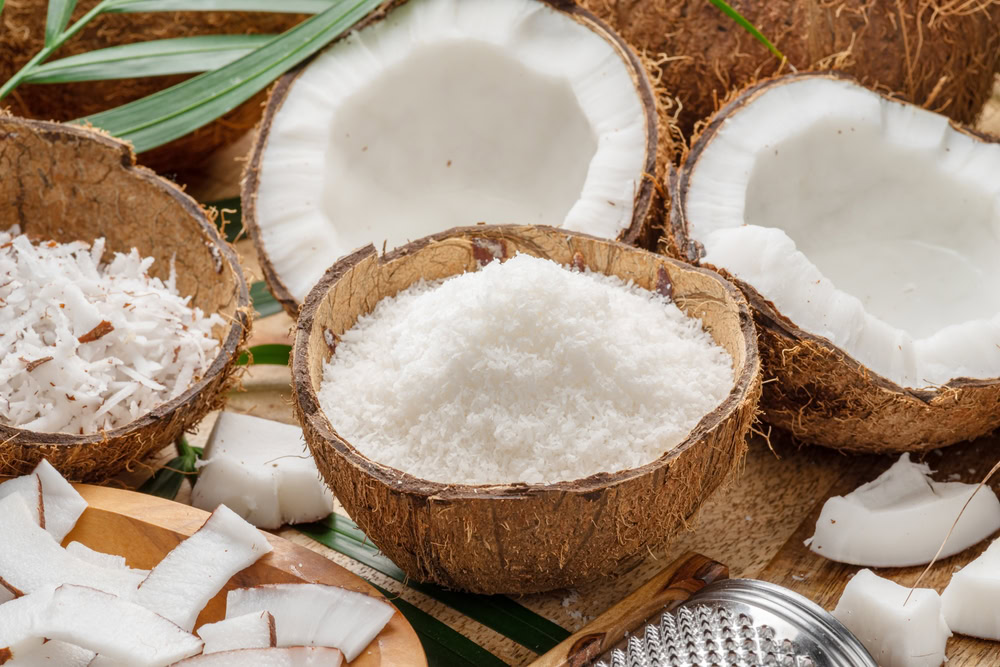
In moderation, coconuts have displayed advantageous effects on chickens. However, the digestive system of a parrot is quite different from that of a chicken and therefore, experimental results in chickens wouldn’t apply to parrots. For instance, parrots lack a cecum in their large intestine, whereas chickens possess two very long ceca.
Oleic acid, which is found in small amounts in coconut and its by-products, has been found in commercial baby parrot feed preparations, but isn’t usually seen in baby wild parrots. As such, though it is safe, it’s not considered biologically appropriate for most parrot species. It is also worth noting that a high-fat diet is considered a risk factor for cardiovascular diseases in pet parrots.
Alternatives to Coconut
Though coconut is considered a very unhealthy fat for your pet parrot, it’s important to not demonize fats themselves. In the correct amounts, fats offer wonderful health benefits for parrots and are definitely a necessity for them.
Most parrots respond favorably to many different types of nuts. Nuts are considered more nutritionally appropriate for parrots in comparison to coconut. They also offer the potential for enrichment because many parrots can easily open nuts which are appropriate for them. Conversely, the only parrots strong enough to open a coconut are very large macaws.
The following nuts are considered safe for most pet parrots and in moderation, are considered to be beneficial for them.
- Walnuts
- Pecans
- Almonds
- Macadamia Nuts
- Brazil Nuts
- Cashews
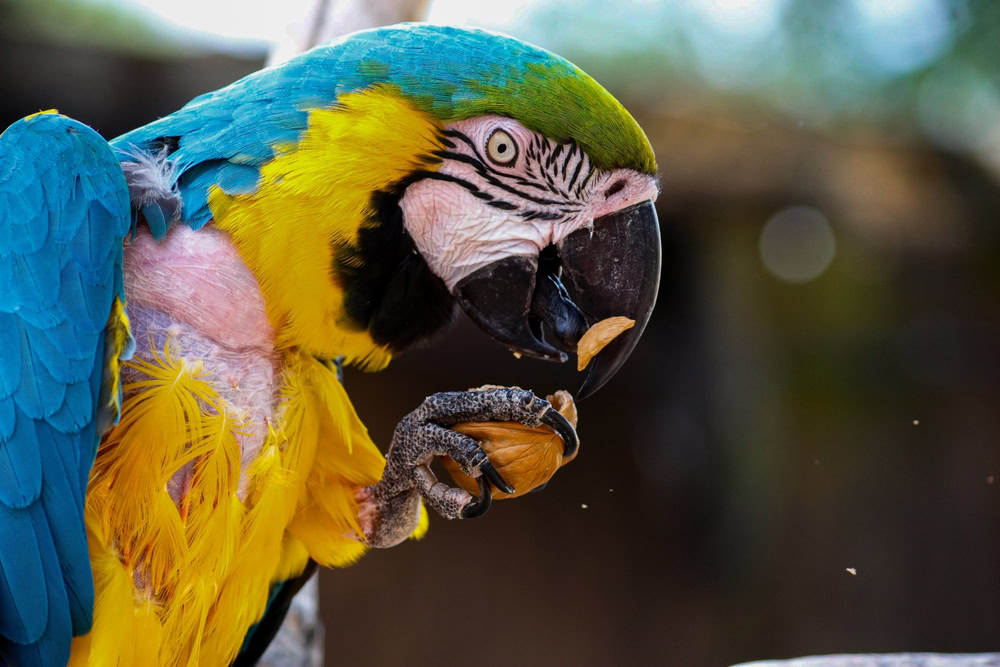

Final Thoughts
As the knowledge of pet parrot nutrition has evolved, we’ve learned that the wild diet of parrots may not be the best option for our pet parrots. Though the introduction of pellets has largely improved the health of our companion parrots, we still do need to incorporate some of their natural foods into their diet.
Coconut, however, remains very unhealthy for parrots nonetheless, and it’s best if it is avoided for your parrot. The high amount of fat in coconut renders it too undesirable for a parrot’s diet, despite the fact that it isn’t toxic for them.
- Related Read: Meyer’s Parrot
